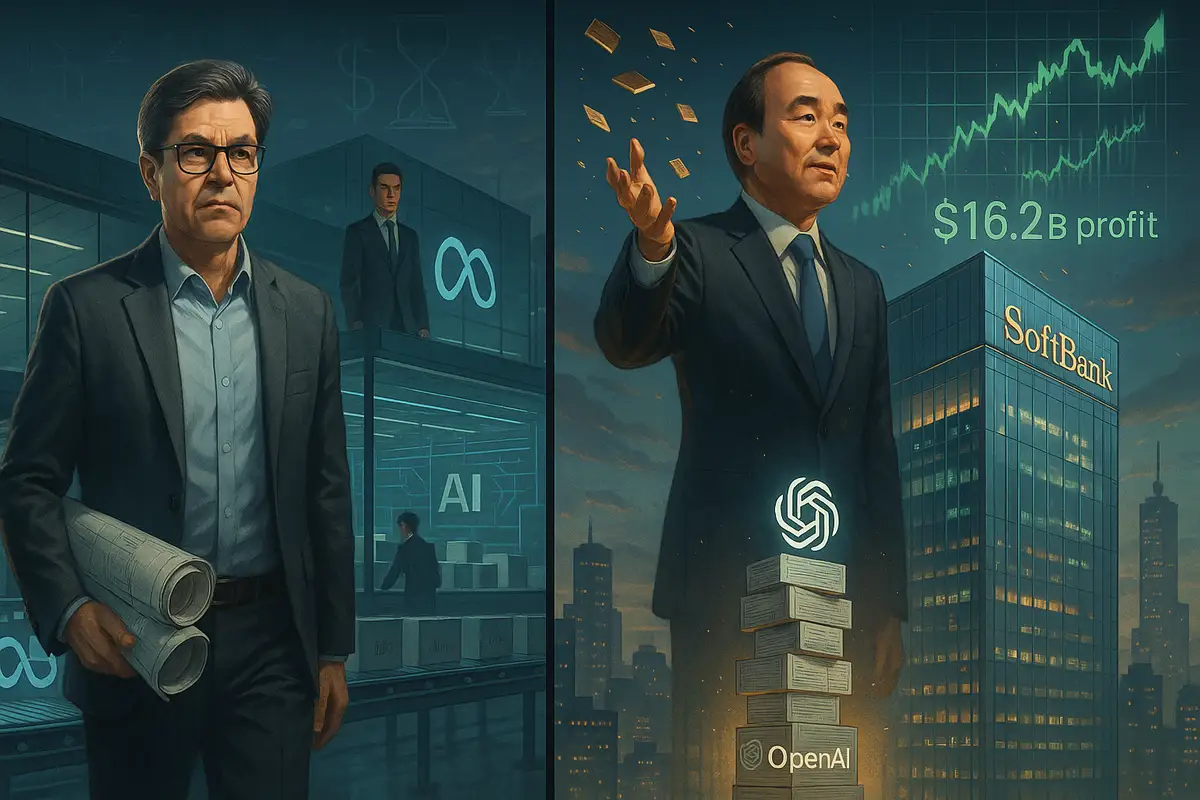Most customer service AI starts with English. Then companies translate. The approach seems logical. English dominates tech. Models train on English corpora. Silicon Valley speaks English. So does Wall Street.
Most customers do not speak English.
Wonderful raised $134 million in four months by doing the opposite. Bar Winkler's Tel Aviv operation builds voice agents for Greek call centers, Dutch utilities, Polish banks, and Arabic-speaking telecom customers. English comes later. Investors put a $700 million price tag on the company in November. The bet is simple. Global platforms treat non-English markets as "phase two." That gap between promise and delivery widens every quarter.
Winkler sold his last company to Tipalti in 2021. Procurement and finance workflows. Now he's back, selling enterprise AI agents to the same buyer profiles. But he pitches in their languages, not his. Index Ventures wrote the checks, $34 million seed in July, $100 million Series A four months after that. Reuters put the year-end ARR target at $10 million. Aggressive doesn't cover it. This company launched in early 2025.
The premise clicks once you hear it. Why translate an English bot when you could build a native Greek one? Yet the entire conversational AI industry moves the other way. Train on English. Launch in California. Expand to London, then Sydney, then everywhere else. Wonderful flips that map. Israel and Amsterdam first. Southern and Eastern Europe next. Asia-Pacific in early 2026. Product strategy, not just sales geography. That's the pitch.
Key Takeaways
• Wonderful raised $134 million in four months by building voice agents for non-English markets before perfecting English flows
• Valued at $700 million, the company targets $10 million ARR by year-end with APAC expansion planned for early 2026
• Platform integrates local CRM, billing, and compliance layers rather than translating English templates, claiming 80%+ resolution rates
• Faces competition from legacy platforms like Kore.ai, cloud suites from Google and Microsoft, and voice-native challengers like Replicant
The Reverse Play
Translation preserves words. It mangles everything else.
A voice agent that speaks Dutch but thinks in English stumbles over local holidays, business hours, VAT rules. Idioms vanish. Formal register appears where casual warmth belongs. Greek customers expect different hold times than Swedish ones. Arab markets have distinct consent language. Polish utilities schedule maintenance around different calendars. These deltas compound. A "localized" chatbot from a global suite often means an English template with word swaps. Works until the first billing dispute.
Wonderful builds flows from scratch for each market. Agents integrate with local CRM, ticketing platforms, billing tools, identity checks. They resolve disputes, update accounts, diagnose issues, book appointments. The company claims resolution rates above 80 percent across tens of thousands of daily interactions. Most complete without human handoff. SiliconANGLE summarized those metrics from company disclosures.
Voice makes it harder. Text chatbots spread fast over the past decade, many failing on nuance and escalation logic. Voice demands lower latency. It must parse accents, background noise, interruptions. Must feel conversational, not scripted. Wonderful emphasizes its voice pipeline for natural speech in languages that major platforms optimize last. Dialect variations. Formal versus casual registers within a single language.
Bezeq tested voice agents for complex support flows. Israel's largest telecom. Published figures from Wonderful's site claim immediate pickup, shorter call duration, roughly 75 percent first-contact resolution. Marketing numbers. Need independent validation at scale. But the direction matters. Contact centers face wage pressure and regulatory mandates for faster resolution. A vendor that speaks the local market and signs service-level agreements gets meetings. One that also cuts average handle time gets contracts.
Local Means More Than Language
The platform play runs deeper than accent training.
Wonderful sells enterprise infrastructure. Not consumer chatbots. The stack covers voice, chat, email. Connects to CRM, ticketing, billing, scheduling, identity systems. Routing, observability, prompt management, policy updates, outcome dashboards. Buyers need to see containment rates, first-contact resolution, average handle time, customer satisfaction scores, error patterns. Red-team tools. A way to test changes on a slice of call volume before full deployment.
Integration depth supports accountability. Agents pull billing records, push updates to databases, obey security policies, log actions for audit, hand off to humans with full context. API work, not just model fine-tuning. Each country adds fresh compliance layers. Data residency rules differ. Consumer protection standards differ. Sector regulations differ. A banking agent in Germany operates under different constraints than a utility agent in Poland. Wonderful positions this complexity as a moat. The suites can bundle AI features. Shipping local compliance and cultural tuning at speed? That's harder.
The bet assumes localization can be systematized. Thirty country-specific variants mean margin pressure. Can the company update all thirty when a foundational model improves? Strong playbooks prevent the portfolio from sprawling into a support nightmare. Or they don't.
Co-founder Roey Lalazar brings localization experience from Kaps, an AI-powered translation platform. That background suggests the team understands scope creep. Proof comes from operational metrics as the footprint expands. Net revenue retention matters. Strong NRR signals that agents move from one flow to many. Also signals trust from legal and compliance teams. Those teams kill deals.
The $700 Million Question
The competitive landscape is brutal.
Legacy conversational AI platforms already hold enterprise logos. Kore.ai, Cognigy, PolyAI sell across voice and digital channels. Reference customers in banking, airlines, telecom, retail. Analyst reports rank them well. Cloud suites pile on from above. Google ships Dialogflow CX and positions Gemini inside a broader agent platform. AWS offers Lex with generative add-ons. Microsoft bundles Copilot and Azure AI Agent tools. Salesforce pushes Einstein for Service. ServiceNow markets AI agents for telco and public sector use cases.
Those suites sell to CIOs who want fewer vendors. They bundle agents with contact center, CRM, workflow licenses. As budgets tighten, that bundling pressure intensifies. A voice-native wave adds more competition. Replicant targets phone support. Retell pushes real-time voice with developer tooling. New players focus on co-browsing and "do it for me" agents inside apps. Many compete on speed of deployment and cost per call. The winner maps to concrete outcomes. Does the agent shorten handle time? Raise satisfaction scores? Cut escalations? Buyers will not care about the label.
Wonderful's wedge is geographic and linguistic. Tries to beat incumbents in markets that giants treat as secondary priorities. A Greek pilot that outperforms an English-first rival earns rollout budget. Same logic applies to Poland or the UAE. Land-and-expand map by language, then by country. Routes to market decide many deals. Local teams, regional telcos and banks, business process outsourcers that want to automate volumes without killing client trust. Systems integrators that own CRM and billing projects.
That $700 million valuation prices in fast execution. Four months from seed to Series A suggests early customers gave strong signals. Index Ventures, Bessemer, Insight Partners, IVP bring distribution reach and scale-up experience. But valuation discipline depends on Wonderful proving the multilingual moat holds. If localization costs balloon or the suites catch up, the premium evaporates.
Track named reference customers outside Israel. Germany and the Nordics converting pilots into full rollouts. First Asia-Pacific logos in early 2026. ARR per country, not just a single global figure. Voice quality in hard languages reveals more than English benchmarks. Arabic and Greek especially. If resolution rates hold across markets and languages, the company carves a durable position. If they slip, the suites absorb late adopters and specialists fight over the scraps.
Why This Matters
For contact center operators: Voice agents that handle local language and compliance could cut costs 30 to 50 percent while improving first-contact resolution. Deployment risk is real. Need proof that non-English agents match or beat human performance on complex flows before committing to full rollouts. Watch net promoter scores closely. Customers punish bad automation faster than they reward good automation.
For enterprise software buyers: The multilingual wedge tests whether specialized AI vendors can hold off the platform giants. If Wonderful wins in Southern Europe and the Middle East, other vertical-focused AI companies gain a playbook. If Microsoft and Salesforce bundle their way to dominance, the window for standalone agent vendors closes fast. Procurement should run parallel pilots across regions. Bake-offs reveal which vendors deliver real localization versus translated templates.
For AI investors: Speed from launch to $700 million valuation signals genuine demand for non-English AI. Path to profitability runs through operational discipline. Localization complexity can kill margins. Watch gross margin trends as the company adds countries. Strong margins mean repeatable playbooks. Weak margins mean each expansion costs more than the last. The test arrives in 2026 as Wonderful pushes into Asia-Pacific markets with entirely different linguistic and regulatory terrain.
❓ Frequently Asked Questions
Q: Who invested in Wonderful and why does that matter?
A: Index Ventures led both the $34 million seed and $100 million Series A, joined by Bessemer Venture Partners, Insight Partners, and IVP. Index has deep European SaaS portfolio connections, Bessemer brings enterprise go-to-market playbooks, and Insight and IVP can underwrite future scale-up rounds. That investor lineup provides distribution reach beyond just capital.
Q: What did Bar Winkler's previous company do?
A: Winkler founded Approve.com, a procurement software startup that Tipalti acquired in 2021. That experience taught him how to sell into finance and operations teams at European enterprises. He now pitches AI agents to the same buyer profiles, using relationships built during the Approve.com years. The exit also gave him credibility with venture investors.
Q: How long does it take to deploy Wonderful's agents?
A: The company advertises deployment in weeks rather than quarters, though specific timelines depend on integration complexity. Traditional contact center AI implementations often take 6-12 months for enterprise rollouts. Wonderful's pitch emphasizes faster time-to-value through pre-built local integrations for CRM, billing, and ticketing systems common in each target market.
Q: What does "80% resolution rate" actually mean?
A: Resolution rate measures how often the AI agent fully solves a customer issue without transferring to a human. An 80% rate means 8 out of 10 interactions complete end-to-end through automation. The remaining 20% escalate to human agents. Industry benchmarks for voice AI typically range from 60-75%, making Wonderful's claimed rate competitive if validated independently.
Q: Why does Wonderful split operations between Tel Aviv and Amsterdam?
A: Tel Aviv houses R&D, tapping Israel's dense AI engineering talent pool. Amsterdam serves as the legal and commercial headquarters, positioning the company inside the EU for sales, compliance, and partnerships. This split structure is common among Israeli startups selling across Europe. It keeps engineering costs lower while establishing credibility with European enterprises and regulators.















